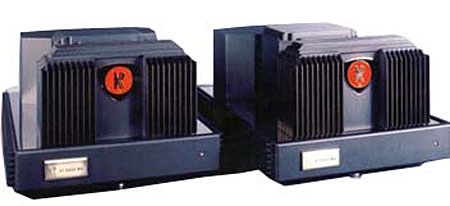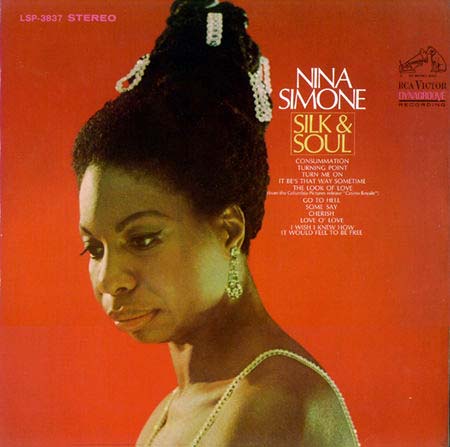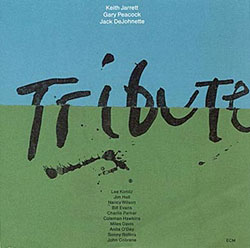LATEST ADDITIONS
Fooled by Fauxharmonic?
Can audiences tell the difference between a computer-generated orchestra and the real thing? Just how far have digital sampling and loudspeaker technologies advanced?
Ben Allison, the election, and, well...me
One of my favorite jazz bands, Ben Allison’s Medicine Wheel, is playing at the Jazz Standard Nov. 4. Allison is an enticing bassist and composer, agile and inventive, flitting from Herbie Nichols to film noir to raga, ska, funky blues, and straight-ahead jazz without showing a seam, loosening his wit, or abandoning the melody or the swing. The band is first-rate (regular readers will recognize most of them): Frank Kimbrough, piano; Jenny Scheinman, violin; Ted Nash and Michael Blake, reeds; and Michael Sarin, drums.
KR Enterprise VT8000 MK monoblock power amplifier
Based in the Czech Republic, KR Enterprise is headed by an occasionally gruff Dr. Riccardo Kron and his American-born wife, Eunice, who operate the company out of a partially abandoned factory that was once part of the state-owned Tesla High Vacuum Technology facility in Prague. The Swiss-funded company is unique in that it manufactures both amplifiers <I>and</I> the tubes that power them. KR's tubes have found favor with other amplifier makers as well—especially the 300BXS, electrically identical to a <A HREF="http://www.stereophile.com/features/229">standard 300B</A> but rated at 25W in class-A.
Andrew Hill & Chico Hamilton (?!)
Andrew Hill, the knotty avant-garde pianist, and Chico Hamilton, the boisterous polyrhythmic drummer, seem an unlikely pair at first (or second) glance. But they set off fascinating fireworks, and carved out sinuous jags of common ground, in a duet recording, <I>Dreams Come True</I>, just released on Joyous Shout!, an Indiana-based label that I’ve never heard of. (Its website seems to be a sort of shrine to Chico Hamilton merchandise.)
Jenny Scheinman
Jenny Scheinman is one of the liveliest, quirkiest jazz musicians out there, a violinist with folk roots, a kind of bluegrass cadence, and a deepening mastery of improvisational idiom. She’s playing at the Village Vanguard through this Sunday with Jason Moran (the best pianist on the scene), Greg Cohen (one of the two or three best bassists), and Rudy Royston (a drummer who’s new to me but he’s very good too). If you’re in the tri-State area, go see her.
Read Stereophile, Don't Buy Dynagroove
I've learned, unfortunately—even painfully—that not all vinyl sounds good. Crazy, I know. I would like to think that great performances make great recordings, and that's all there is to it. But it's not that simple. Even the greatest musical performance can be slashed to death by a bad recording, or by the foolish acts of the music industry. I learned the hard way. Is there any other way to learn?
The Science of Subwoofing
There was a time, as recently as 40 years ago, when frequencies below 100Hz were considered extreme lows, and reproduction below 50Hz was about as common as the unicorn. From our present technological perch, it's too easy to smirk condescendingly at such primitive conditions. But just so you're able to sympathize with the plight of these disadvantaged audiophiles, I should tell you that there were two perfectly good reasons for this parlous state of affairs. First of all, program material at that time was devoid of deep bass; not because it was removed during disc mastering but simply because there wasn't any to begin with. The professional tape recorders of the day featured a frequency response of 50–15kHz, ±2dB—just about on a par with the frequency performance capability of a cheap 1988 cassette tape deck.
Recording of August 1991: Tribute
<B>KEITH JARRETT TRIO: <I>Tribute</I></B><BR>
Keith Jarrett, piano; Gary Peacock, bass; Jack DeJohnette, drum<BR>
ECM 1420/21 (847 135-2, 2 CDs only). Jan Erik Kongshaug, O. Fries, engs.; Manfred Eicher, prod. DDD. TT: 115:05
Buy Cheap Speakers—Have Fun!
"Be like my friend Frank. He imagines that he's purchased certain products—right now he's imagining that he bought a pair of hard-to-get English speakers which he has read a review of but hasn't heard. This is ideal, since the speakers can sound better and better as Frank imagines more and more. When he tires of these speakers and gets excited about something else, he doesn't have to trade them in. He only needs to start imagining the next product." That was Sam Tellig's friend Frank, back in March of this year. No one could have said it better, but I have a followup.




